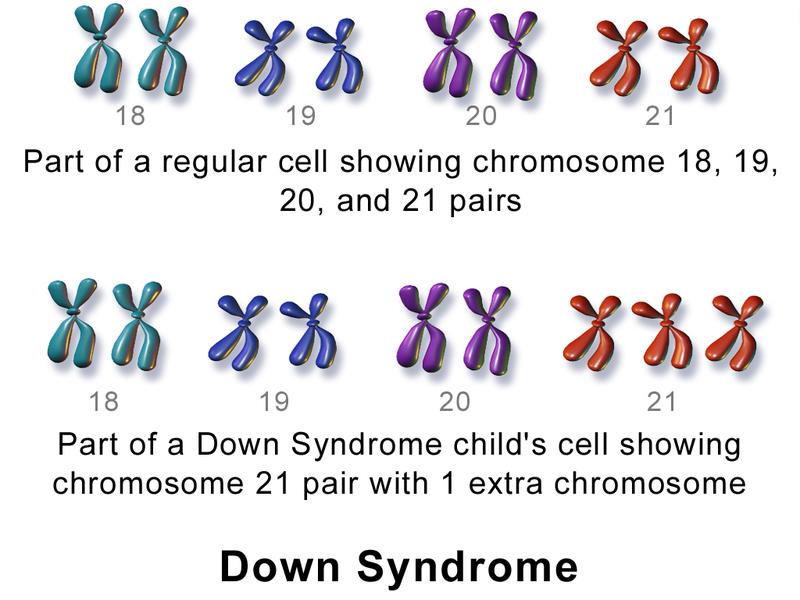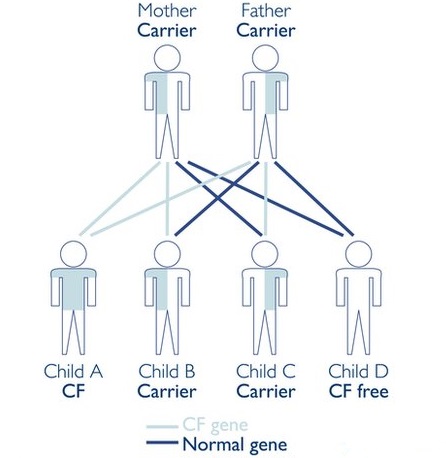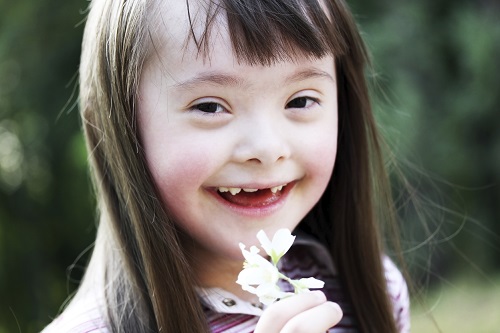 New Health Guide
New Health Guide
Down syndrome is the outcome of chromosomal abnormality that causes intellectual disability, weak muscle tone, and a characteristic facial appearance in infancy. People with this condition have to deal with cognitive delays but the intellectual disability is often mild or moderate. The condition affects one in every 691 babies born in the U.S., and is therefore the most common genetic condition today. More than 400,000 people in the U.S. have Down syndrome and as many as 6,000 babies are born with Down syndrome in the U.S. each year. As it is quite common, many people ask, "How is Down syndrome inherited?" Let's find out more about it.
Every cell in your body contains a nucleus that stores genetic material in genes. Grouped along rod-like structures called chromosomes, these genes have the codes that determine your inherited traits. There are 23 pairs of chromosomes in the nucleus of each cell, and half of these are from each parent. Some people may have a full or partial extra copy of chromosome 21 and this leads to the development of Down syndrome. The course of development changes considerably due to this additional genetic material.

There are different types of Down syndrome depending on the way the cell divide itself. Here is more about it:
Not all types of Down syndrome are inherited. Parents can transfer Translocation Down syndrome to their children – the only form of Down syndrome that can be inherited and about one-half of all translocation Down syndrome cases are inherited.

 Now you have some understanding of "How is Down syndrome inherited?" you may also be interested in the chances of giving birth to a child with this condition. The condition affects people in all parts of the world irrespective of their economic levels or races. However, it is more common in women who conceive later in their lives. There is a one in 350 chance of giving birth to a child with Down syndrome when a woman becomes pregnant at the age of 35. The chance goes up to 1 in 100 for women becoming pregnant at age 40. At age 45, it is more likely to give birth to a child with Down syndrome because the incidence becomes 1 in 30.
Now you have some understanding of "How is Down syndrome inherited?" you may also be interested in the chances of giving birth to a child with this condition. The condition affects people in all parts of the world irrespective of their economic levels or races. However, it is more common in women who conceive later in their lives. There is a one in 350 chance of giving birth to a child with Down syndrome when a woman becomes pregnant at the age of 35. The chance goes up to 1 in 100 for women becoming pregnant at age 40. At age 45, it is more likely to give birth to a child with Down syndrome because the incidence becomes 1 in 30.
If one of your babies has Down syndrome, there will be 1 in 100 chances that you will have another child with trisomy 21. In case the father is the carrier, there is a 3% risk of recurrence of translocation. The risk increases to 10-15% in case the mother already has it. Genetic counseling helps in this regard and plays a role in identifying the origin of translocation.
Unfortunately, there is no way to treat Down syndrome. However, the options like speech therapy and physical therapy help people deal with certain issues associated with the disorder. It is important to screen for medical problems usually associated with this order and then opt for corrective surgery to improve quality of life. Enriched environments may also help children live meaningful lives.